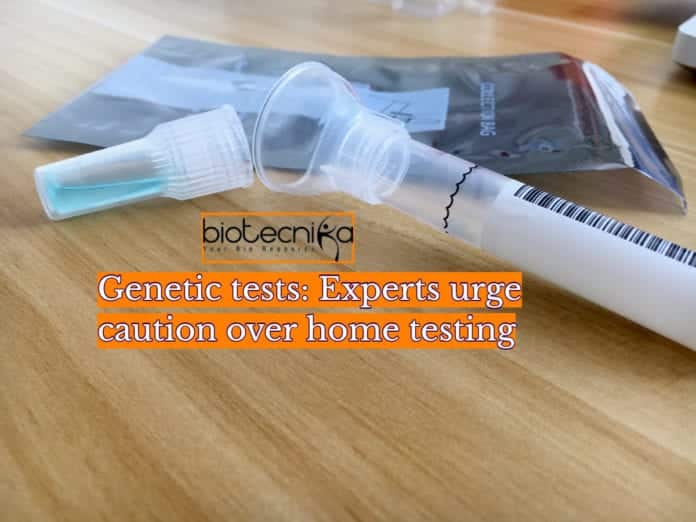Genetic tests and Home testing; Experts Warns on the Health Decisions
People should not make their health decisions based on the genetic tests they do at home, experts have warned.
The University of Southampton research team, writing in the British Medical Journal, warn that the results can be unreliable.
The scientists and geneticists said that these tests could be wrongly reassuring – or lead to any unnecessary worry.
The 23andMe, one of the companies offering tests, said there were “many cases” where the results had prompted further checks & preventative treatment.
The study does not cover the genetic screenings offered by the NHS to people with a family history of certain diseases, or other risk factors.
Instead, the study covers the so-called direct-to-consumer (DTC) genetic tests.
Prof Anneke Lucassen who is the president of the British Society for Genetic Medicine, the lead author of the research, said that the genetic tests sold online & in shops should absolutely not be used to inform the health decisions without any further scrutiny.
Lucassen added finding a ‘health risk’ via these genetic tests often does not mean an individual will go on to develop any health problem in question; while ‘reassuring’ the results might
be unreliable.Prof Lucassen described seeing her patients whose tests wrongly indicated they had faulty genes suggesting a high risk of certain cancers.
She added that she understood people might be drawn to the tests in the hope of getting clear information about their future health.
But the BMJ paper warns that these genetic tests often prioritize “breadth over detail”, citing a 23andMe company gene test that checks for a few variants of Brca1 & 2, linked to breast & ovarian cancer risks, when there are actually thousands of them.
A 23andMe company spokesman said its processes were “extremely accurate” and it spelled out exactly what its Brca gene test looked for.
He added that they make it clear with their customers that they test only for certain genetic variants. And as far as the variants they are testing for, they are some of the most well studied & associated with extremely high risk. He further said that 23andMe results can & do facilitate valuable conversations with healthcare providers.
23andMe spokesman added that they had many cases where customers have taken a 23andMe result to their doctors, been prescribed confirmatory testing & have had preventative treatment as a result.
Prof Helen Stokes-Lampard of Royal College of GPs said that Genetic testing should not simply be done to satisfy an individual’s curiosity about their health, as the results could have very real implications.
He further added that their members have reported the patients coming to see them with the results of home-based genetic tests, asking for them to be interpreted & some commercial companies actually advise these tests instead of providing the necessary advice & feedback themselves. And this isn’t a good use of our time or NHS resources & should be the direct responsibility of these companies that are being paid to perform the tests, he said.
Dr. Helen Wallace who is the director of GeneWatch UK said that they recommend that people do not buy these genetic tests, which are at best a waste of money.
And handing an individual’s DNA to a private company also raises privacy concerns for him/her & members of their family, he added.
Source






























